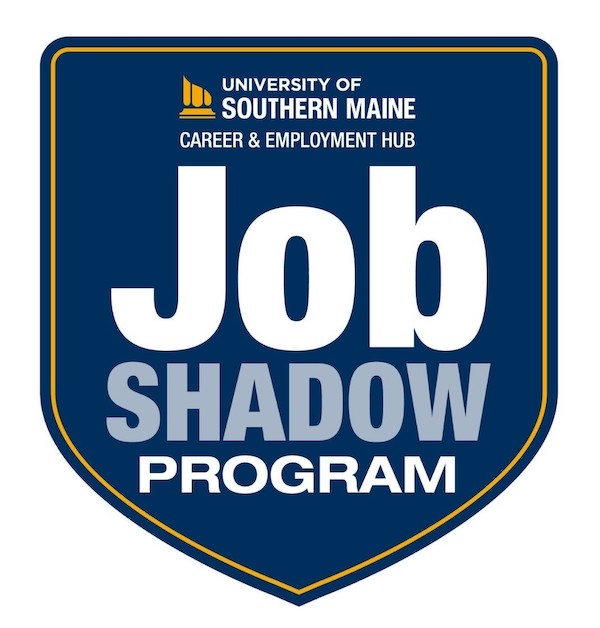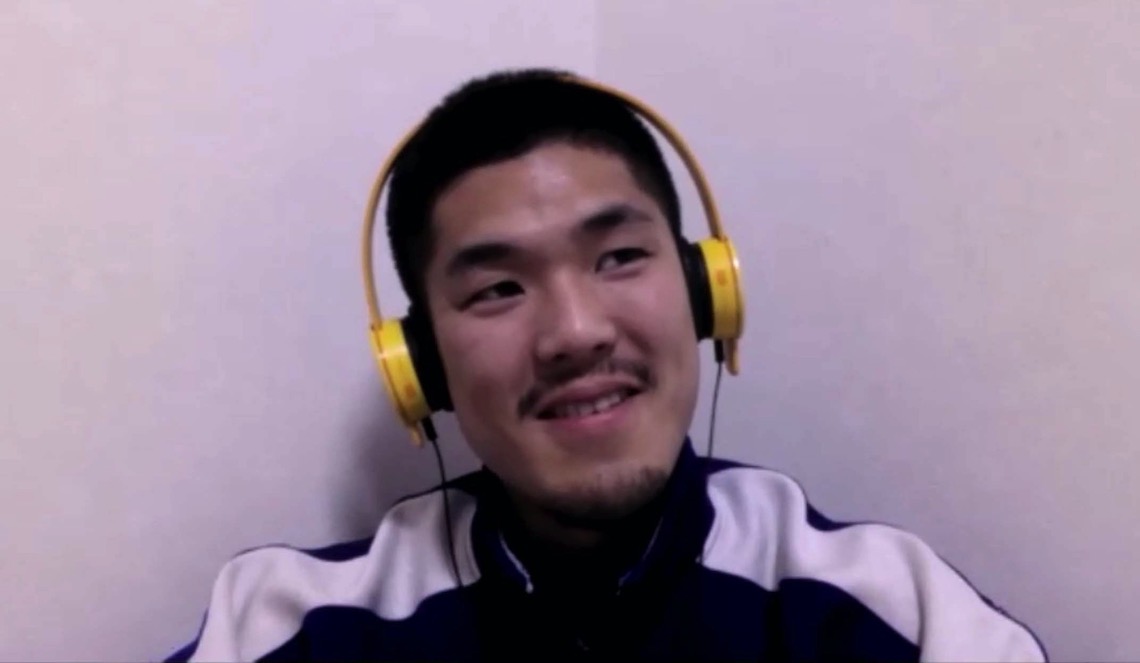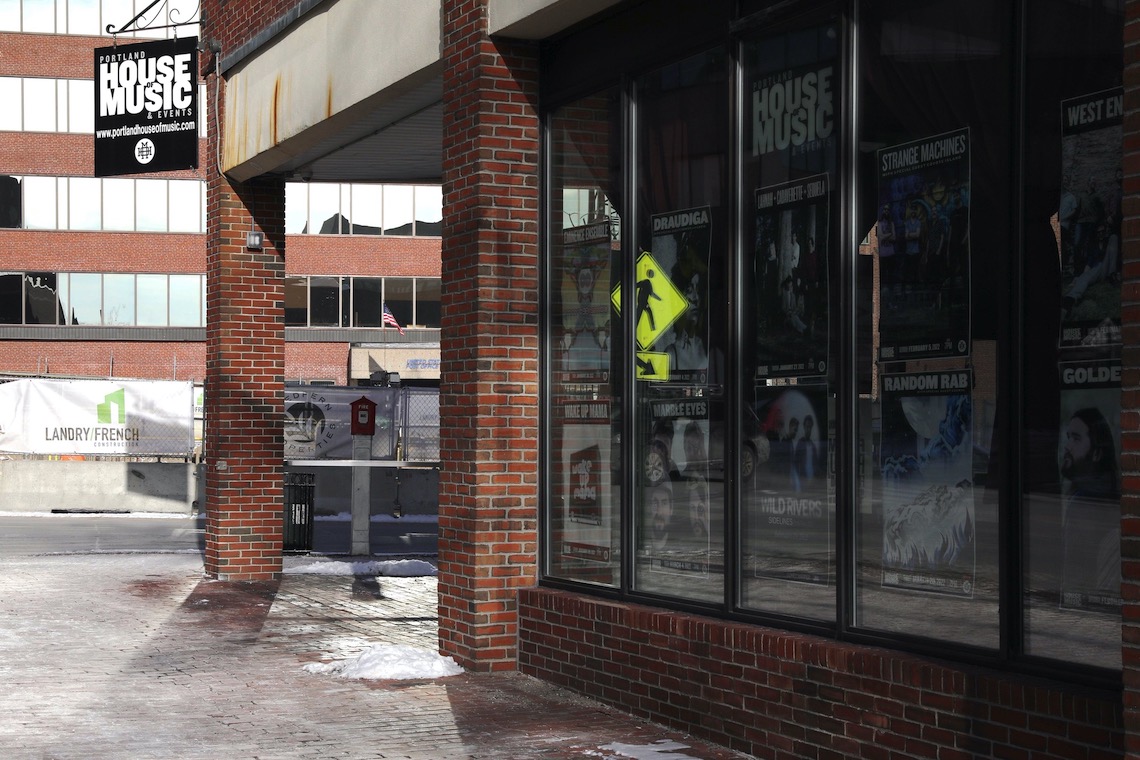
The search for a dream job is already hard enough. Doing it from the other side of the world only makes it harder.
Masa Sekioka graduated from the University of Southern Maine last May with a degree in Music Performance. He then moved back to his childhood home in Yamagata, Japan. After reconnecting with family, Sekioka intended to return to the United States to begin a career in the music industry, but those plans aren’t moving as quickly as he hoped.
“Yes, it is scary to jump in. It’s so scary especially when you don’t know what the heck you are doing,” Sekioka said. “But the outcome of doing something absolutely uncomfortable is an absolutely amazing thing that you can achieve or you can learn from.”
Sekioka’s positive outlook hasn’t wavered in the face of several challenges. Basic conversations with potential employers by phone or Zoom require him to give up sleep because of the 14-hour time difference between Japan and Maine. The complex regulations for immigrant workers pose another barrier.
Looking for help, Sekioka turned to USM’s Career and Employment Hub, where he learned about the new Job Shadow Program set to make its debut in February. Participants will go behind the scenes of area businesses to learn how they operate and make industry contacts.
The Hub paired Sekioka with the Portland Symphony Orchestra. He’ll be the PSO’s only job shadow. Every student in the program can expect the same singular level of attention from their hosts.

“We believe in the value of providing the opportunity to one student and gear that opportunity towards their expectations, their needs, and what they want. Because once you have a group of two, three, five, ten students, there are some things that are left out and people miss,” said Peter Hofmann. “We hope to avoid that by having just one-on-one connections.”
Hofmann and Whitney Duchaine are the program’s architects. As Career Liaisons at the Hub, they work to build bridges between the campus and business communities. They recruited 10 businesses to serve as hosts for job shadows. The list of openings can be found online on the USM Job and Internship Board through the MyUSM Campus Portal.
Once approved for the program and assigned to a business, it’s up to the job shadows to communicate directly with their hosts to work out certain details of their experience. Video conferencing is a must for Sekioka, for example, since he can only participate remotely from his home in Japan. There’s still no getting around the time difference, however.
“They might start at this time, 10 p.m. for me and 8 a.m. for the PSO,” Sekioka said. “So yes, I have to flip my day a little bit and stay up a little late. And if it’s only one day and I can learn something, I don’t mind at all.”
The single-day time limit is another key feature of the program. It was designed to appeal to students who might be hesitant to make a long-term commitment while also juggling classes and maybe a part-time job or other responsibilities at home.
“If the student goes to an employer and doesn’t love it, that’s great information,” Duchaine said. “They know what they don’t like as opposed to an internship when they get into it and they’re a week in and realize, ‘Oh, I don’t want to do this.’ And then they’ve got a semester’s worth of work to do anyway.”
The additional time commitment beyond the one-day visit is minimal. A mandatory orientation runs about 30 minutes. Upon completion of the program, a job shadow is expected to write a thank you note to their hosts and a brief review for the Hub staff. Their comments will help evaluate the program and improve it for the future.
Time is especially valuable to Wadak Harbi. As a second-year student studying Human Biology, she attends classes Monday through Friday. She also works three of those days in the Disability Services Center to support classmates who need help taking tests. She spends Saturdays teaching Arabic to middle school students. The research project that she’s considering would cut even further into her spare time. Harbi is building her résumé with the goal of becoming a doctor.
“I’ve been in hospitals before, I think everyone has at one point in their life. But I’ve never been on the other spectrum of the doctor side, and I’m really hopeful to gain some valuable experience from that,” Harbi said. “Even if it’s just one day, you can do a lot in one day.”
Harbi initially went to the Hub in search of an internship and changed course when she discovered a job shadow opportunity with Greater Portland Health, a medical practice serving more than 12,600 people. A Friday visit would cause the least disruption in her hectic schedule with only one class to take into account.
“I’d say that I’d have to do most of my assignments on that class earlier on or later, if the professor accepts that. But I hope that works out,” Harbi said. “And if it doesn’t then we’d have problems, but then I’d figure it out.”

The motivation to make program work is shared on the business side. Ken Bell has owned and operated the Portland House of Music and Events for 15 years. His staff was steady for most of that time until the COVID-19 pandemic upended the job market. By hosting job shadows, he hopes students enjoy the experience so much they might consider filling some of those openings.
“It’s a pretty fun way to make a living,” Bell said. “You meet rock stars. At my level, you meet some people that just played in a garage last week, and then you meet some people who’ve already won a Grammy or two. I kind of like that aspect.”
The periodic limitations on public gatherings throughout the pandemic have been especially hard on venues for live entertainment. Bell is once again lining up performances, and he’s looking for help to run them in areas ranging from door hosts to marketing assistance.
“I look forward to hopefully impacting someone’s life in a good way and give them some experience that they can’t get in a classroom,” Bell said.

Businesses are not only building a relationship with their individual job shadows but also the University as a whole. The program opens a direct line of communication to the Hub. With the knowledge gained about the inner workings of those businesses, Hub staff gains valuable insight to help students find jobs in those fields.
“All businesses, all of them, said that they can imagine that this job shadow program or the experience with a student could lead to something else,” Hofmann said. “Maybe not a full-time position. But maybe an internship, a part-time position. All of them are open to that idea.”
Job shadows will make their visits to businesses from February 7 to February 11. Slots are still available. February 1 is the deadline to submit an application.

